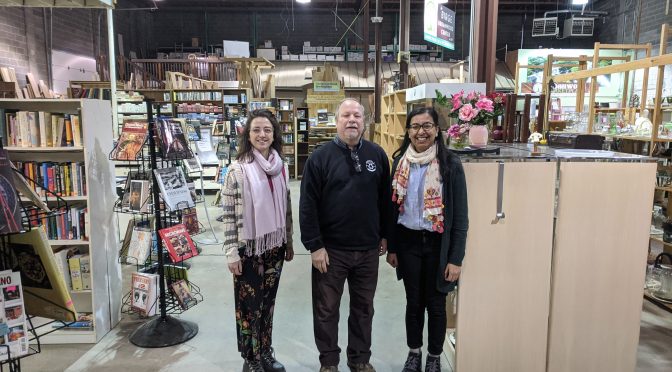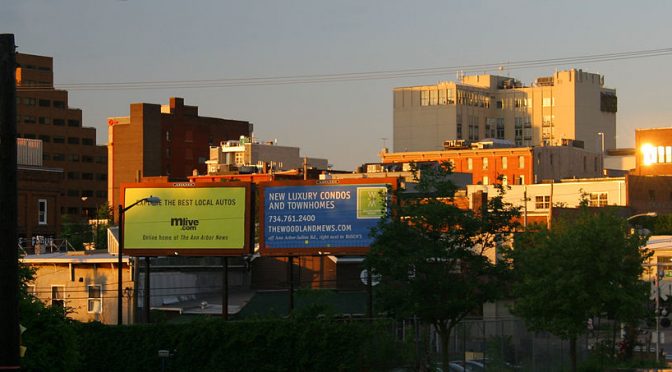
Recycle Ann Arbor (RAA) is known for its curbside recycling in Ann Arbor, among its other services (the Reuse Center, the Drop-off Station, the Recovery Yard for construction waste, and a myriad of education and zero-waste events). It started Michigan’s first curbside recycling program, which was also one of the first such programs in the nation. Director of Strategy Bryan Weinert talks with hosts Isabelle Brogna and Prachiti Dhamankar about how RAA is adapting to the changing landscape of recycling in Ann Arbor.
Some of these changes are general to recycling, such as concerns about quality versus quantity of the recyclable materials collected. As recovery rates of recycled goods increases, contamination with non-recyclable goods tends to also increase, for a couple reasons: people who know they should start recycling don’t know what is recyclable; and “mainstream” recycling service providers (like typical waste management companies) aren’t as proactive as RAA on keeping contaminants out of the recycling stream. RAA prides itself on not only increasing recovery rates where it can, but also increasing the quality. It increases recovery rates, for example, by servicing apartment buildings, which are more difficult to service than single-family homes. RAA increases quality of the recycling stream by educating individuals along each route who repeatedly have non-recyclable material in the recycling bins.
Bryan shared with us some critiques of Ann Arbor’s 2019 Solid Waste Plan. Bryan, and RAA, feel that the SWP doesn’t go far enough, even if it does have some good recommendations. In their eyes, it should be more of a zero-waste plan, “fundamentally rethinking the way that we handle waste, and not just to maximize recovery rates but also reduce the amount of waste ultimately that’s being generated.” The Plan also included a recommendation to municipalize curbside pickup, reasoning that the City could provide the same service for less than RAA. RAA has convinced the city to put curbside recycling out to bid instead of immediately bringing it under the purview of the city. RAA is convinced that their services were undervalued and that the city’s costs were underestimated in the Plan analysis.
In other news, RAA will be reopening Ann Arbor’s Materials Recovery Facility (MRF, pronounced “murf”). Shut down a few years back due to safety concerns, the MRF has since been open only as a transfer station, where recyclables are unloaded from the curbside pickup trucks, loaded into semi-trucks, and transported 250 miles to a MRF in Cincinnati. Having a local MRF reduces the carbon footprint of the recycled materials, as well as provides local jobs. RAA has found partnerships and end markets in the region for its recycled materials, and being a non-profit and mission-driven organization, it is excited about reopening the education center associated with the local MRF.
As Bryan mentioned in the episode, check out the A-Z Recycling Guide for all your recyclable questions! And remember, when in doubt, leave it out. If you don’t know for sure about whether a material can be recycled, it’s best to leave it out of the recycling bin. This ensures that the bulk of the recyclable materials are at a high enough purity to be sold on the market.




